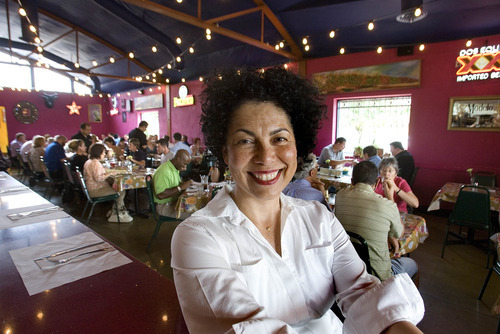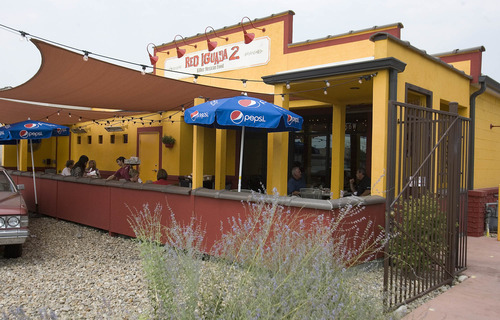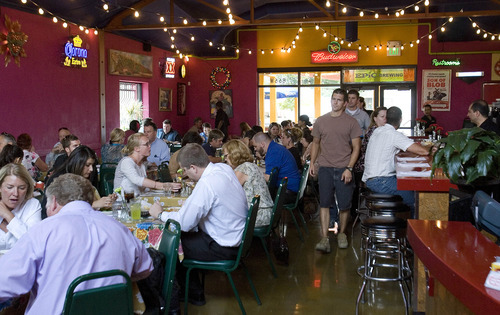This is an archived article that was published on sltrib.com in 2012, and information in the article may be outdated. It is provided only for personal research purposes and may not be reprinted.
A staffer for Bill Clinton stepped into the Red Iguana on North Temple Monday night and ordered take-out.
An hour later, the restaurant manager got a telephone call, saying the former President and his entourage loved the killer vegetarian nachos, chili verde and pollo a la moreliana.
"Imagine," said restaurant co-owner Bill Coker. "Not McDonald's. Not Burger King. But Red Iguana."
On Wednesday, Coker and wife Lucy Cardenas were on hand during a press conference at Harmons Emigration Market touting locally owned businesses.
They and others were armed with a study conducted in the Salt Lake Valley that showed independent retailers return 52 percent of their revenue to the local economy — compared with 14 percent by national chains. The data from 2011 compiled by national research firm Civic Economics also calculated that locally owned restaurants returned nearly 79 percent of their revenue, compared with 30 percent by their national counterparts.
The study concluded that shifting just 10 percent of purchases from national chains to local retailers and restaurants would keep $487 million in the Utah economy — money that now leaves the state to be spent elsewhere.
"Most of us have a sense that local businesses are good for communities," said Betsy Burton, owner of the King's English Bookstore. "And studies in other parts of the country have borne this out over the past decade. Now, we have hard evidence right here that consumers can have a huge impact on the local economy."
Nan Seymour, executive director of the nonprofit Local First Utah that advocates for independent businesses, called the study the first of its kind in the Intermountain West.
The analysis was paid for by Salt Lake City and Local First Utah, with a matching grant from the American Booksellers Association. Ongoing support by Zions Bank and Harmons also made the study possible, Seymour said.
Daniel Houston, a partner at Civic Economics, said similar studies in Chicago, San Francisco, New Orleans, Phoenix, and Grand Rapids, Mich., by the national research group shows that shopping locally can keep at least three times more revenue in local economies.
"Salt Lake City is no exception," he said in a statement. "If anything, the local effect may be even stronger in Utah."
Fifteen retailers and seven restaurants, all independent and locally owned, participated in the local survey.
For comparison purposes, Civic Economics analyzed annual reports for four major national chain stores (Barnes & Noble, The Home Depot, Office Max and Target). In addition, researchers analyzed reports for three national restaurant chains (Darden, McDonald's and P.F. Chang's).
While chain stores and restaurants extract locally generated revenue from the community with each nightly bank transaction, independents create a cycle of local spending, according to the study.
The extra dollars in local communities produce more jobs, extra tax revenue, more investment in commercial and residential districts, and enhanced support for local nonprofits. In short, these businesses create better places, it said.
Red Iguana's Cardenas attributes the restaurant's success to loyal local patrons who have made the eatery so popular that its owners have built a second restaurant on South Temple, Red Iguana 2, just blocks away from the original.
The two restaurants serve 1,200 people a day and " provide a gathering place for special occasions," while employing 160 people "who spend their money here," she said.
Twitter@DawnHouseTrib —
'I am Local' free exhibit
When • 6 to 9 p.m. Saturday
Features • 14 photo narratives of Utah businesses.
Where • Poor Yorick Art Studios, 126 Crystal Ave. (2590 South) Salt Lake City







